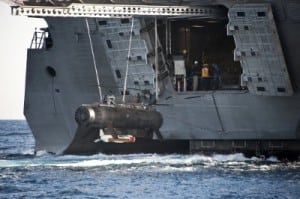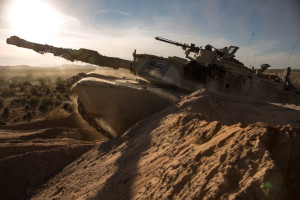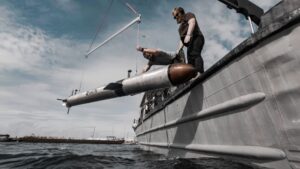
The Defense Department in its 2015 Selected Acquisition Report (SAR) officially rang the death knell for Lockheed Martin's [LMT] Remote Minehunting System (RMS), a mine detecting semi-submersible that was originally planned to be deployed from the Littoral Combat Ship (LCS).According to the report, the planned quantities to be purchased have decreased from anywhere between 44 to 54 units total to the 10 already delivered. Cancelling the program saves the department $750 million, a senior defense official said March 24. However,…













